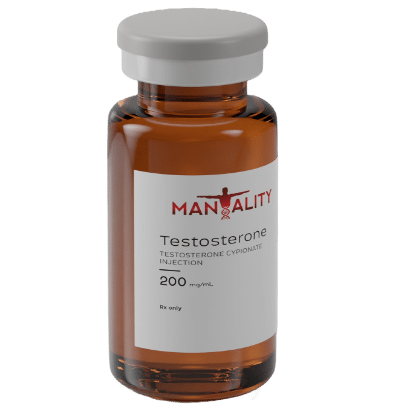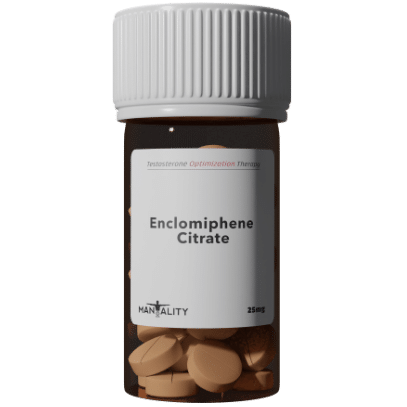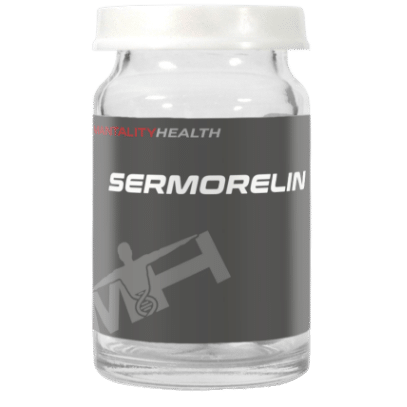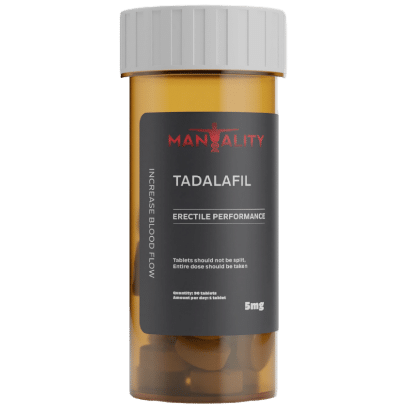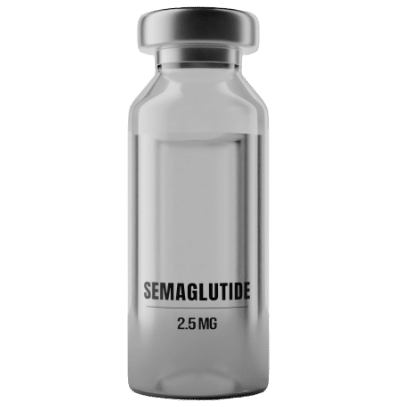Testosterone and Prostate Cancer: What You Need to Know
There’s a myth afoot – that there’s a link between testosterone and prostate cancer. We’re here to dispel that. Here’s what you need to get the help you need.
Got testosterone and prostate cancer on the mind?
Is it because you suffer from low testosterone (Low T)? Or, because you suspect you might? You’ve noticed that you’re gaining weight around your midsection, feeling fatigued much of the time, and having trouble performing sexually. And, you know those are some of the symptoms.
Do you worry about how testosterone replacement therapy might be increasing your risk of prostate cancer? Maybe the risk has stopped you from trying the therapy altogether.
Well, you’re not alone. And you’ve come to the right place.
There’s a myth afoot – that testosterone therapy increases your risk of prostate cancer. We’re here to dispel that. Here’s what you need to know to get the help you need.
Testosterone and prostate cancer
First, you don’t need to accept your Low T condition as your new normal.
And, you don’t need to worry about inviting prostate cancer when you undergo testosterone replacement therapy either.
Plus, a new study even suggests that testosterone therapy reduces the chance of aggressive prostate cancer in men.
We’re counting. And that’s a win, win, win.
Seems too good to be true?
Stay with us.
How did testosterone therapy get a bad name?
There are two old studies to know about.
First, in 1941, Huggins and Hodges published a study of three men with metastatic prostate cancer, who were given testosterone therapy after they’d already been diagnosed. (That’s right, they’d already been diagnosed and cancer had already spread to other parts of their bodies.)
Only one man’s cancer progressed during therapy (based on a lab test not used anymore). From this, Huggins concluded that testosterone therapy could increase the growth of prostate cancer in metastatic disease. There’s nothing wrong with his conclusion.
But, unfortunately, it’s been interpreted incorrectly over these years.
Somehow it came to be that testosterone caused prostate cancer, even as smaller studies proved it did not.
It’s important to note that this same man had been castrated before therapy. Because castration was known to decrease prostate cancer. Probably this idea that removing testosterone could shrink prostate cancer helped support the misunderstanding of Huggin’s conclusion – that testosterone caused prostate cancer.
Later, in 1981, Fowler and Whitmore of Sloan-Kettering Memorial Hospital published their study of 52 men who also already had metastatic prostate cancer prior to therapy. 45 of the men responded poorly to the therapy. 48 men had been castrated previously, too.
What’s all this talk of previous castration?
When a man is castrated his testosterone level drops to zero, or pretty close to zero.
And, when you later reintroduce testosterone to his system, his prostate gland fuels prostate growth – that’s known as testosterone flare.
If you add testosterone to a man who already has a certain threshold of testosterone in his body, though, (a man who hasn’t been castrated, in other words), there won’t be further prostate growth.
This is the saturation model, as discovered by Marks and colleagues in 2006 and coined by Morgentaler later on. Testosterone works when there are receptors available to carry it into the cell. The receptors in the prostate gland, it turns out, are saturated at fairly low levels of testosterone.
So testosterone only causes prostate growth up to a certain threshold, and it’s a pretty low threshold. The sort of threshold you’d want to consider therapy for (according to a new study), before prostate cancer develops (by some other set of factors, and not because of the therapy itself), and hopefully to avoid cancer altogether.
What does the new study say?
NYU Langone Medical Center and its Laura and Issac Perlmutter Cancer Center analyzed more than a quarter million medical records of mostly white men in Sweden – one of the very few countries that keeps detailed records of cancer and prescription medicine for its whole population. There isn’t a North American data set that’s equivalent.
They found that, as a group, men prescribed testosterone for longer than a year did not experience an increased risk of prostate cancer. And, in fact, that their chance for aggressive prostate cancer reduced by 50%.
Stacy Loeb, MD, an NYU Langone urologist and the lead on this study, still advises physicians to look for prostate cancer risks in men taking therapy. Patients over forty, patients with a family history of the disease, and patients of African-American descent are considered to be at greater risk, in any case, as some examples. But, she also stresses that physicians should not shy away from prescribing therapy to appropriate patients for fear that the therapy itself will create a greater risk of disease.
Loeb says that overall it’s best for men to maintain balanced testosterone levels. If your numbers fall below 350 nanograms per deciliter, you should seek medical advice to see if you should undergo therapy.
Because, all other factors being the same, facing any eventual prostate cancer with balanced testosterone levels seems favorable to facing it with lower testosterone levels.
That’s right. Testosterone can actually lower the risk of prostate cancer, and help you through it if it comes.
This is big news…
Because testosterone treatments are already common.
In the last decade, surveys tell us that testosterone therapy has skyrocketed among middle-aged men. And this even in the face of some uncertainty about increasing risk of prostate cancer.
And because prostate cancer is a leading cause of death for men.
One in seven men develop prostate cancer. That’s a higher percentage than the number of women who develop breast cancer.
And because most men become testosterone deficient.
Indeed, testosterone levels naturally drop by about 1% per year once a man reaches his thirties. If your testosterone drops at this rate, you likely won’t experience clinically low testosterone until you’re in your 80s. But many men experience clinically low testosterone before then, and they’re chiefly whom this new study is hoping to serve.
Really, when you think about it…
The idea that testosterone therapy increases the risk of prostate cancer never made much sense. Because prostate cancer is only common in older and middle-aged men with naturally declining testosterone levels. It typically strikes in men over
Because prostate cancer is only common in older and middle-aged men with naturally declining testosterone levels. It typically strikes in men over 65 and is quite uncommon in men before age 40. It almost never affects men with the highest testosterone levels – teenagers and 20 somethings.
So, next up…
Loeb says her team will seek to learn why lower testosterone levels seem to trigger aggressive prostate disease, and why maintaining normal testosterone levels through therapy seems to keep aggressive disease away.
And right now…
Testosterone treatment is not a pact with the Devil. It’s not trading short-term sexual energy for long-term malignant cancer. Nope, testosterone and prostate cancer aren’t mortal enemies.
So, more than ever, we want to help you overcome your Low T, safely and smartly.
Still thinking about it?
Don’t.
If you suffer from Low T, or think you might, it’s a medical imperative that you check your numbers – and get your balance back, if you need to.
Here’s what to expect at your consultation, and here’s what our community has to say about working with us. Check out our FAQs, and download our e-book for even more information.
We’re here, and we’ll always be here.
Because there’s too much life you’re missing out on with Low T. You can look better, feel better, and be the man you and your loved ones deserve – for longer.

